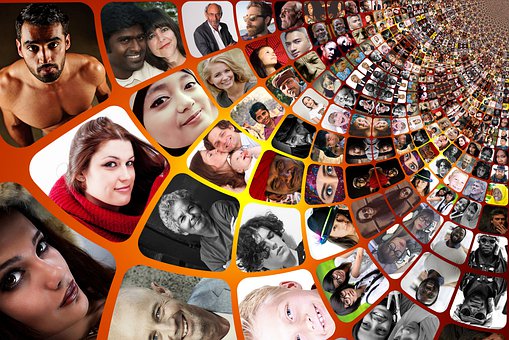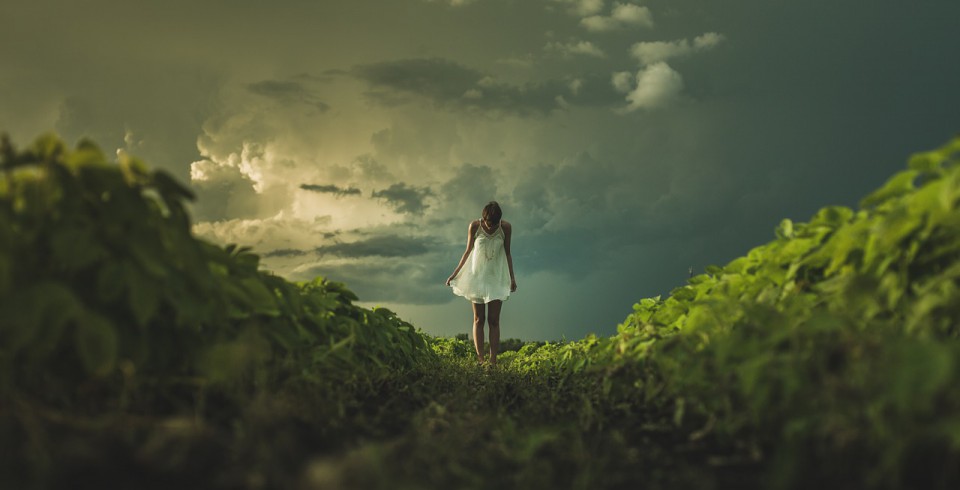Diversity is an absolute good in storytelling. We live in a world with an infinite amount of people with diverse backgrounds who look, talk, and act differently. Telling stories that feature people with various ethnicities, sexualities, body types, and gender identities isn’t an attempt to appeal to the widest demographic or to “pander to SJWs”; it’s just  honest. Each individual writer might not see every kind of person in their lifetime, and I understand why people could scoff at certain terms like “demisexual” and “gender fluid” if they never met those types of people growing up, but that doesn’t mean they don’t exist. I’m reminded of some advice I once read about writing authentic dialogue: “Everyone doesn’t speak the same way you do; the world didn’t grow up in your backyard.” Don’t exclusively fill your stories with heterosexual white men; they aren’t the only people on Earth.
honest. Each individual writer might not see every kind of person in their lifetime, and I understand why people could scoff at certain terms like “demisexual” and “gender fluid” if they never met those types of people growing up, but that doesn’t mean they don’t exist. I’m reminded of some advice I once read about writing authentic dialogue: “Everyone doesn’t speak the same way you do; the world didn’t grow up in your backyard.” Don’t exclusively fill your stories with heterosexual white men; they aren’t the only people on Earth.
Of course, nothing is ever actually that simple. As easy as it is to describe a character as Black or Muslim, making that portrayal authentic is its own struggle. How can I write with any certainty the viewpoints of people with different backgrounds? I don’t know their struggles, their mentalities, or how they interact with the people around them. As much as I would love to write a story about a demisexual character, I have to accept that I don’t actually know what it’s like to view the world from that perspective, and writing that character without understanding that worldview could easily be seen as hollow or pandering.
On top of that, even if I were to interview hundreds of people with atypical sexualities to the point that I knew with certainty how to write that character, my heterosexuality would undermine any authority I have over the subject. People could read my work, look at me, and say, “Well, that’s not his story to tell.” I can’t argue with them. No matter how much I research and study people of different backgrounds, any story I write runs the risk of seeming inauthentic.  For example, if I were to write a story from the perspective of a woman and I included a passage detailing the many annoyances of menstruation based on my experience growing up with sisters who constantly complained about their aching uteruses, I cannot avoid the scoffers who claim that I’m not allowed to describe periods because I’ve never had one. I don’t think they’re wrong for being dubious about my description of an experience I’ve never had, but that suspicion makes writing stories with characters unlike myself much more daunting.
For example, if I were to write a story from the perspective of a woman and I included a passage detailing the many annoyances of menstruation based on my experience growing up with sisters who constantly complained about their aching uteruses, I cannot avoid the scoffers who claim that I’m not allowed to describe periods because I’ve never had one. I don’t think they’re wrong for being dubious about my description of an experience I’ve never had, but that suspicion makes writing stories with characters unlike myself much more daunting.
Does having more ethnically and sexually diverse characters even matter if the writers are the same old white men? Representation is great, but if the people controlling the media are all the same race and gender, then what real world benefit is there to diversifying our characters? Perhaps it’s selfish of me to demand that I be allowed to write characters with distinct backgrounds. Maybe the solution to this problem is to encourage people of all colors, genders, and sexualities to become writers so that the market can be filled with authentic stories of people from all walks of life. That would require a major upsetting of the status quo, but maybe that’s what we need.
After writing this, I’m left with more questions than answers. Ultimately, I think as long as we consciously desire to make everyone feel loved, respected, and represented, then we’ll find ways to make that happen. The details will come later. For right now, I’m okay with just accepting the radical notion that diversity is good.
Special guest post by Ian Malone.

Thanks for writing this. These struggles really resonated with me and these are things I think about almost every single time I write anything.
LikeLike
I think this is an incredibly complex issue, and I’m unsure what I think about it. DFW writes from many different perspectives in his books, and often changes up the lingo to accompany different accents. This isn’t a problem when he’s writing as, say, a Canadian, but it becomes an issue if he’s going for an urban accent. Why is this? What are the lines that can/should be crossed by authors?
Great post, but frustrating at the same time. Not sure where I stand on lots of this.
LikeLike